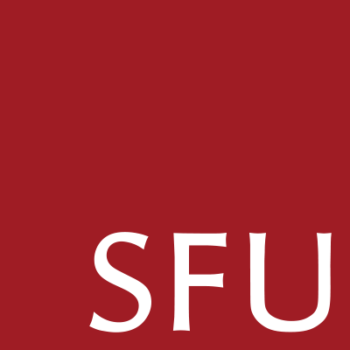

Simon Fraser University
speciality: Communication
What is a Communications degree?
Communications is a universal degree, which explores the traditional forms of communication such as verbal, physical, visual and written communication but also extends beyond that to cover mass communication and social media. There are different types of communications degrees depending on the degree level.
Overall, Communications focuses on teaching effective communication through social media, web, print, mass media and verbal communication. However, there are two types of Communications degrees that exist. For instance, a Bachelor of Arts in Communications in the US is focused on preparing students for careers that are connected to writing, marketing, promotions, journalism and public relations. In contrast, Bachelor of Science in Communications is dedicated to the technology used in the science behind modern communication and prepares students for careers in production or sound engineering.
A Communications degree teaches students about how media and communication influences cultures, societies and people’s identities. It involves a significant amount of critical writing and research and covers different disciplines such as journalism, public relations, entertainment production, marketing, event planning and so many more disciplines, which are somehow connected to exchanging information and conveying messages. There are also different specialization options associated with this degree, including political communication, mass media, journalism, health communication, etc.
It is worth noting that a Communications degree has many intersection points with psychology, sociology, linguistics and in some cases politics.
Benefits of a Communications degree
The main benefit of a Communications degree is its universal nature. It applies to almost any subject or professional setting. For example, some of the top careers in the field of Communications include announcers, art directors, editors, broadcast and sound engineering technicians, reporters, correspondents, broadcast analysts, technical writers, writers and authors, interpreters, translators, etc. Therefore, it keeps students’ career options open and doesn’t require them to have a predetermined career path that they want to follow.
Communications degrees prepare students to make an impact from the start of their careers unlike other degrees, which require further training. This is possible thanks to the multitude of professionally accredited degrees in Communications, which develop students’ abilities based on the established standards in the field. Moreover, there are many Communications courses, which offer work placement opportunities that enable students to gain the required professional skills before they have even started their career.
Another benefit associated with Communications degrees is the fact that they develop students’ written and verbal communication skills significantly.
A major advantage of Communications over other degrees is that in most cases there are no prerequisites required to study Communications.
Communications degree structure
The duration of a Communications degree varies depending on the country and degree level. For example, Higher Education Institutions in the UK offer 3-year Bachelor’s courses. In some cases, the course may extend to four years if students are given the opportunity to spend a year abroad or in industry between the second and third year through a sandwich course. Bachelor’s degrees in Communications in the US usually take around four years to complete.
Over the duration of a Bachelor’s Communications degree, students are expected to learn and be able to apply the established communications theories by developing the technical skills required to work in a professional setting. In the first year of their studies, students learn predominantly how media and communication influences cultures, societies and people’s identities. Optional modules may introduce them to professional communication, journalism, documentary, film-making, marketing, etc. In addition to the introductory topics, this degree allows students to learn about more complex areas of communications such as interpersonal relations, brand management and linguistics at a later stage. For instance, the second and third years enable students to get a deeper understanding of theoretical concepts related to media and culture and develop practical skills in research and communications. Additionally, students may have the opportunity to take optional modules and pursue their interests in different areas related to Communications such as gender, race, youth, culture, digital media, political communication, public relations, etc.
The most common duration of a Master’s degree in Communications is between 1 and 2 years depending on the mode of study (full-time or part-time) and country.
PhD and MPhil degrees in Communications require students to dedicate anywhere between 3 and 6 years to their studies depending on the mode and country of study.
4 Student Reviews
Filter reviews-
Communication25 Nov, 2022
 StudentCAEducation is fine
StudentCAEducation is fineI am in the communication program which is 95% theoretical which is great and really interesting but it would be refreshing to see some hard skills inter grated in the curriculum. Overall SFU is strictly education for me and I’m not interested in the social aspect SFU sometimes promotes. The co-op program is really good and I have had an extremely positive experience with it
View moreProgramme: CommunicationDegree: Bachelor'sGraduation: 2024Delivery Type: BlendedCampus: British Columbia -
Communication22 Nov, 2022
 StudentCAPerfect balance of theory and applied knowledge
StudentCAPerfect balance of theory and applied knowledgeI’ve always been the type of person who is curious about what shapes people’s opinions while simultaneously having a deep passion for writing and research. When I was browsing for University programs, I stumbled upon the Communications program at Simon Fraser University and instantly knew it was the right fit. It’s a top university in Canada, the student culture is vibrant, and SFU’s co-op program is truly like no other. Thanks to co-op, I’ve gained relevant experience in my field while i’m still studying in school, and it has helped me further understand what career path I would like to take. The quality of education is also just as good. The professors I find, are always super engaging, and truly care about delivering course content that is in the best interest of students. SFU also has tons of opportunities to meet new people with 300 student led clubs which is where I found my closest friends. I would highly recommend this school to anyone who is looking for an engaged university where research and community intersect!
View moreProgramme: CommunicationDegree: Bachelor'sGraduation: 2024Delivery Type: BlendedCampus: British Columbia -
Communication03 Nov, 2022
 StudentCACommunication Program
StudentCACommunication ProgramThe Communications program at SFU is honestly so good! I love the professors and the courses are taught super well. I like how the courses are also offered at their downtown campus because the only thing that I find difficult is the commute to the Burnaby campus these days.
View moreProgramme: CommunicationDegree: Bachelor'sGraduation: 2022Delivery Type: On CampusCampus: British Columbia -
Communication20 Feb, 2022
 StudentBeautiful environment, strong teachers
StudentBeautiful environment, strong teachersThe school is really good. The campus is beautiful, the climate is very pleasant, and the teachers are excellent and patient. The teachers are very good at teaching. The rest of the time we just want to study hard and make progress every day. School canteen food is quite rich, students can also use raw materials to cook their own, is the dormitory conditions need to be strengthened, but it has been good. The school is really good, the campus is beautiful, the climate is very pleasant, the teachers are all excellent and patient. The teachers have a high level of class. For the rest of the time, we just talk about studying hard and making progress every day. The school cafeteria has a lot of food, and students can use raw materials to cook their own meals. The dormitory conditions need to be improved, but it is already good.
View moreProgramme: CommunicationDegree: Bachelor'sGraduation: 2020Delivery Type: On CampusCampus: British Columbia

